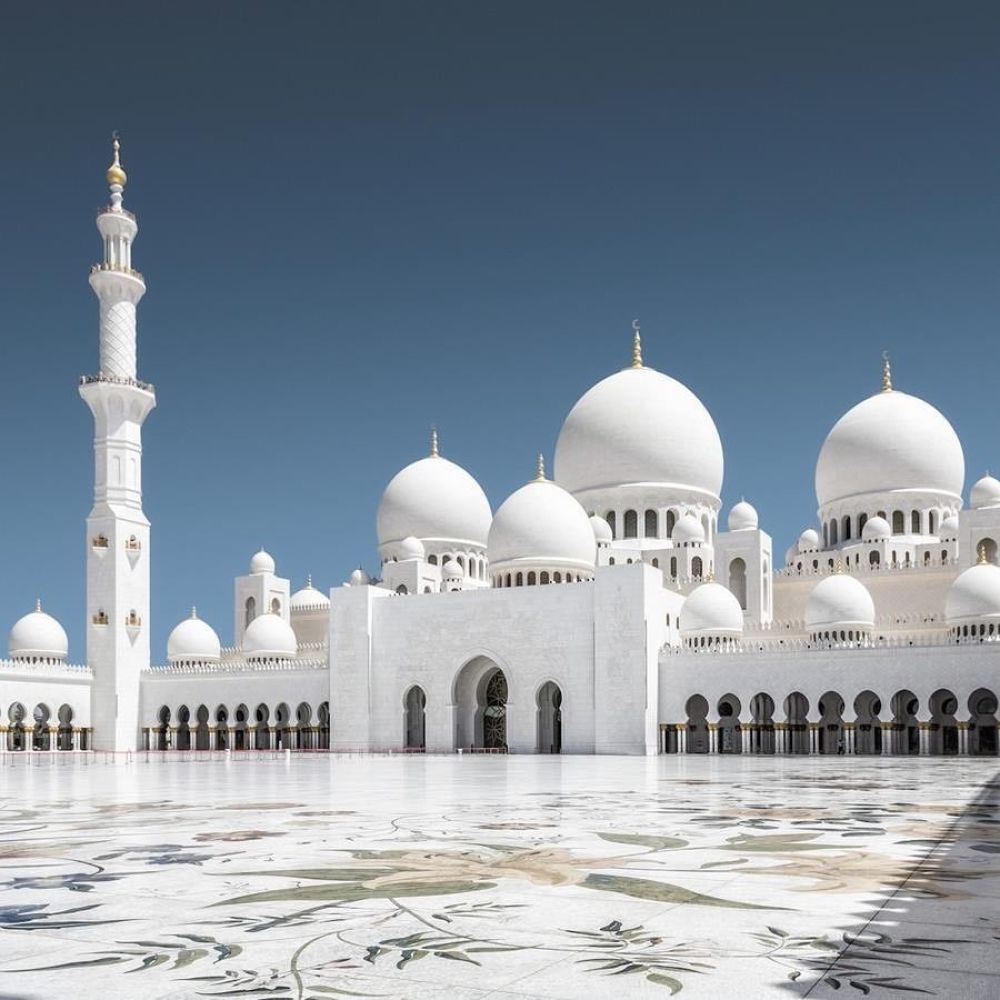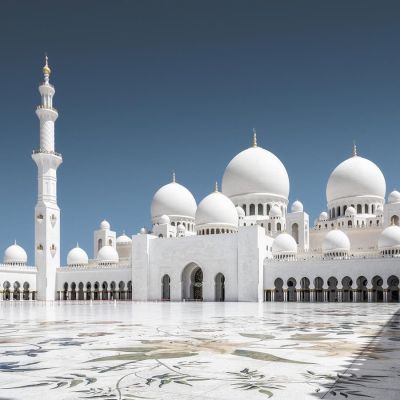

The White Mosque, also known as Masjid al-Abiad, is the oldest mosque in Nazareth and a symbol of the city's longstanding Muslim community. The guided tour of the White Mosque offers visitors an immersive experience into the architectural beauty and historical significance of this spiritual haven. During the tour, you will learn about the mosque's construction during the Ottoman period, the reasons behind its famed white façr the mosque serves for the local Muslim community. Visitors will also get the chance to appreciate the intricate Islamic art and calligraphy adorning the mosque's interiors. Please remember to dress modestly and be respectful of worshipers during your visit.
The White Mosque Cultural Exchange Program is designed for visitors who want not just to see the mosque as a historical site but also to engage with the local Muslim community of Nazareth. This program typically includes a visit to the mosque, a discussion session with members of the Muslim community, and possibly a shared meal. It is an opportunity to gain a deeper understanding of the customs, traditions, and contemporary issues faced by the community. Due to the interactive nature of this program, it may offer a more personalized approach to learning about the cultural significance of Islam in Nazareth.
The workshops at the White Mosque are designed to enrich knowledge about Islamic heritage through a hands-on learning experience. Visitors can participate in workshops on Islamic art, including calligraphy, tile-making, and geometric designs, which are integral parts of the aesthetic culture within Islamic architecture. Expert instructors will guide you through the practices that have decorated Islamic holy sites for centuries. This activity is not only educational but also provides a tangible connection to the artistry of the Islamic world. Workshops are suitable for individuals of all ages, making them ideal for families or student groups.
Experience the White Mosque under the serene beauty of the night sky with a special night tour. As dusk falls, the mosque is illuminated, highlighting its architectural elegance and creating a tranquil atmosphere. The night tour allows visitors to see the mosque in a different light—quite literally—and provides a unique perspective on this place of worship. Guides will share stories of the mosque's past and its role within the community while showcasing the nighttime ambiance that most daytime visitors miss. It's a peaceful experience that contrasts with the bustling daytime tours.
For non-Muslim visitors interested in observing or understanding Islamic prayer rituals, the White Mosque offers a respectful prayer experience. The activity doesn't require participants to engage in prayer but rather to witness the process and learn about its significance. Knowledgeable guides will explain the various stages of Muslim prayer, the adhan (call to prayer), and the significance of prayer times throughout the day. This program is conducted in a respectful and non-intrusive manner, allowing for a greater appreciation of Islamic faith practices.
The White Mosque in Nazareth is not only a place of worship but also a significant architectural landmark. This guided study tour caters to architecture enthusiasts, students, and professionals who are interested in exploring the mosque's design and structure. The tour offers insights into the Ottoman influences on the mosque's architecture, including its minaret, dome, and prayer hall layout. Participants will learn about the architectural evolution of the building, restorations, and how the mosque's design plays a role in acoustics and the accommodation of worshippers during different times. It's an in-depth look at the blend of beauty and functionality in Islamic architecture.
For those with a passion for photography, the White Mosque offers an amazing opportunity to capture the essence of Islamic architecture and cultural heritage. Photography sessions can be organized either independently or as part of a guided photography tour group. These sessions allow photographers to explore the mosque's architectural details, patterns, and play of light within the sacred space. Whether you're a professional photographer looking to expand your portfolio or an amateur eager to capture memories, the photogenic nature of the White Mosque won't disappoint. It's important to note that permission must be obtained for photography within the mosque, and visitors should be mindful of preserving the spiritual atmosphere.
The White Mosque runs various community outreach programs aiming to foster understanding and cooperation between people of different faiths. Visitors can join in on these programs, which may include interfaith dialogues, community service activities, and educational events. These outreach programs are a great way to engage with local issues, contribute to the community, and understand how the mosque functions as a center for not just worship but also social responsibility. Participation in these programs can be a highly rewarding experience for those looking to make a positive impact during their travels.
Educational seminars on religious studies are offered at the White Mosque, providing a scholarly approach for visitors interested in learning about Islamic theology, jurisprudence, and history. These seminars are typically led by knowledgeable scholars and include lectures, discussions, and Q&A sessions. Topics might range from the life of the Prophet Muhammad to the study of the Quran and Hadith literature. Visitors wishing to gain a deeper understanding of Islamic teachings will find these seminars insightful and enriching.
Participating in a community iftar (fast-breaking meal) during the holy month of Ramadan is a profound cultural experience that the White Mosque extends to visitors. This activity provides an opportunity to partake in the traditions and rituals associated with Ramadan. Guests will join the community at sunset to break the fast with dates and water followed by a communal meal, usually consisting of a variety of Middle Eastern dishes. It’s a time of charity, reflection, and camaraderie, offering insights into one of the most significant periods in the Islamic calendar. The mosque welcomes visitors of all faiths to experience this aspect of Islamic culture.
